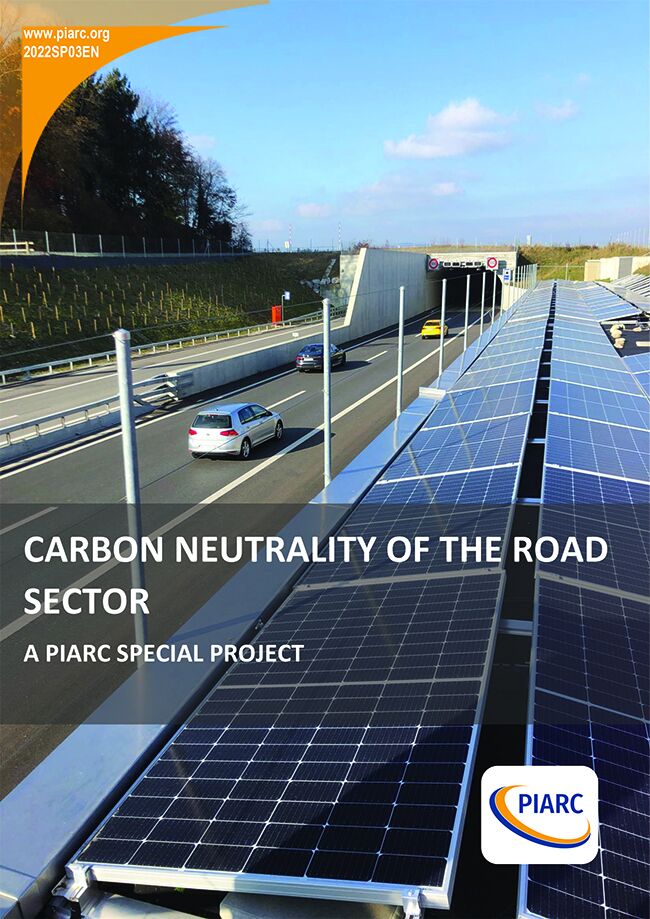Carbon Neutrality of The Road Sector

Road transport is vital for society to function and, for the foreseeable future, is expected to remain the dominant mode of transport for people and goods. However, the construction, operation, maintenance and use of the highway infrastructure are responsible for large quantities of carbon emissions. Knowledge of the non-reversible, damaging consequences of climate change has resulted in global acceptance of the need to reduce carbon emissions in all sectors of human activity, including the highways sector. However, as efficient transport is vital to national economic growth, actions to reduce carbon emissions must not negatively impact the development and maintenance of high-quality road infrastructure, particularly for LMICs.
This report aims to identify actions being undertaken as well as potential new options to progress towards carbon neutrality.
Part A of this report examines the policies and strategies being adopted by National Road Administrations (NRAs). 83% of questionnaire respondents reported that their country had Net Zero targets in place. Irrespective of whether targets are in place, a range of strategies are being adopted for reducing carbon emissions. The report summarises the major themes, which appear to have a high degree of commonality across the world and are being adopted in both LMICs and HICs. Three case studies are highlighted: the Net Zero strategy adopted by National Highways in the UK, which has the most well-developed policy identified, and two road improvement projects where a range of actions were taken to reduce emissions. The levers available to road authorities through their procurement practices and relevant practice from the rail sector are reviewed. Finally, the need to achieve a ‘fair transition’ is discussed, in which carbon emissions are reduced without impeding economic growth in developing countries and regions.
Part B of this report examines the technical solutions that are available for decarbonisation and, for specific technologies, the potential carbon savings were estimated.
The project identified that much early progress has been made across all development levels to establish policies and pledges to decarbonise road transport. Several strategic and technology options have been identified based on actual implementation in various countries, on Construction and maintenance of road infrastructure, Decarbonisation of road user vehicles, Operations on the road network, Road user choices and Carbon offsetting. This confirms that road administration and operators across the globe are already striving to address decarbonization. Available solutions can be replicated by their peers.
During this research, several themes have emerged as important enablers. Whilst some of the recommendations will wholly be in the gift of national road administrations to implement, some will require support at Governmental level and others will require collaboration with the supply chain. Above all, the potential to reduce most road emissions exists, even if this will require long term investment and national and international cooperation.
Information sheet
- Date: 2022
- Author(s): PIARC
- Domain(s): Environment
- Type: 2022SP03EN - A PIARC Special Project
- PIARC Ref.: 2022SP03
- ISBN: 978-2-84060-727-4
- Number of pages: 151